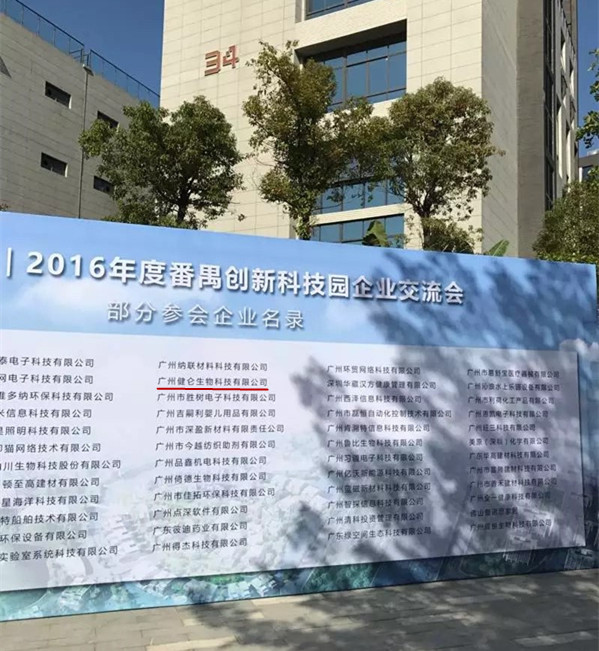- 产品描述
隐孢子虫检测卡(胶体金法)
广州健仑生物科技有限公司
Cellabs公司是一个的生物技术公司,总部位于澳大利亚悉尼。专门研发与生产针对热带传染性疾病的免疫诊断试剂盒。其产品40多个国家和地区。1998年,Cellabs收购TropBio公司,进一步巩固其在研制热带传染病、寄生虫诊断试剂方面的位置。
隐孢子虫检测卡(胶体金法)
该公司的Crypto/Giardia Cel IFA是国标*推荐的两虫检测IFA染色试剂、Crypto Cel Antibody Reagent是UK DWI水质安全评估检测的*抗体。
【Cellabs公司中国代理】
Cellabs公司中国代理商广州健仑生物科技有限公司自2014年就开始与Cellabs公司携手达成战略合作伙伴,热烈庆祝广州健仑生物科技有限公司成为Cellabs公司中国代理商。
我司为悉尼Cellabs公司在华代理商,负责Cellabs产品在中国的销售及售后服务工作,详情可以我司公司人员。
主要产品包括:隐孢子虫诊断试剂,贾第虫诊断试剂,疟疾诊断试剂,衣原体检测试剂,丝虫诊断试剂,锥虫诊断试剂等。
广州健仑生物科技有限公司与cellabs达成代理协议,欢迎广大用户咨询订购。
我司还提供其它进口或国产试剂盒:登革热、疟疾、流感、A链球菌、合胞病毒、腮病毒、乙脑、寨卡、黄热病、基孔肯雅热、克锥虫病、违禁品滥用、肺炎球菌、军团菌、化妆品检测、食品安全检测等试剂盒以及日本生研细菌分型诊断血清、德国SiFin诊断血清、丹麦SSI诊断血清等产品。
欢迎咨询
欢迎咨询2042552662
隐孢子虫的相关知识
隐孢子虫病是由一种叫微小隐孢子虫所引起的传染病,而其他品种的隐孢子虫也偶然会引起此病。症状通常于感染后7天左右出现,包括腹痛、水泻、呕吐及发热。大部分患者的病症持续6-10天,但也有可能会持续数星期。免疫功能低下患者病情可能非常严重,甚至威胁生命。
1.急性胃肠炎型
免疫功能正常的感染者多表现为急性胃肠炎。腹泻,每天4~10次,糊状便或水样,偶有少量脓血,可有恶臭。常伴上腹不适、疼痛,甚至恶心、呕吐。部分有发热。病程自限,多在2周内自然缓解。无复发,预后良好。
2.慢性腹泻型
主要见于免疫功能缺陷者,特别是艾滋病患者。起病缓慢,腹泻迁延不愈,水样便,量多,每天1~10余升不等,每天10次左右。偶有血性便,多伴腹痛,易发生脱水、酸中毒和低钾血症、维生素缺乏等。病程可持续3~4个月甚至1年以上,可反复发作。
检查
1.粪便检查
粪便镜检可见白细胞或脓细胞,但无红细胞,少有吞噬细胞。粪便中找到卵囊,一般用金胺-酚染色法进行筛查,可疑虫体时可用改良抗酸染色法,二者联用效果。
2.病原体检查
收集患者粪便或呕吐物,查隐孢子虫卵囊是主要检测手段。可用直接涂片或浓集法,特殊染色检测。
3.免疫学检查
用酶联免疫吸附试验检测特异性抗体。IgM抗体出现早,但消失快,不易检测到;IgG抗体在感染后两个月左右出现,可持续1年余,适用于流行病学调查。免疫荧光试验(IFA)和单克隆抗体测定,敏感性和特异性均达100%。
4.小肠黏膜活检
必要时可小肠黏膜活检。目前认为已发现的隐孢子虫至少有6种,人和哺乳动物的隐孢子虫感染几乎都是由微小隐孢子虫所引起。
【Cellabs公司产品介绍】
公司的主要产品有:隐孢子虫诊断试剂,贾第虫诊断试剂,疟疾诊断试剂,衣原体检测试剂,丝虫诊断试剂,锥虫诊断试剂等。Cellabs 的疟疾ELISA试剂盒成为临床上的一个重要的诊断工具盒科研上的重要鉴定工具。其疟疾抗原HRP-2 ELISA检测试剂盒和疟疾抗体ELISA检测试剂盒已经成为医学研究所的*试剂盒。Cellabs产品主要包括以下几种方法学:直接(DFA)和间接(IFA)免疫荧光法,酶联免疫吸附试验(ELISA),和胶体金快速测试。所有产品都是按照GMP、CE标志按照ISO13485。
二维码扫一扫
【公司名称】 广州健仑生物科技有限公司
【】 杨永汉
【】
【腾讯 】 2042552662
【公司地址】 广州清华科技园创新基地番禺石楼镇创启路63号二期2幢101-3室
【企业文化】



Cryptosporidiosis is caused by an infectious disease called Cryptosporidium parvum, and other species of Cryptosporidium occasionally causes the disease. Symptoms usually appear about 7 days after infection, including abdominal pain, watery diarrhea, vomiting, and fever. The condition of most patients lasts 6-10 days, but it may last for several weeks. The condition of the patient with low immune function may be very serious, even life-threatening.
1. Acute gastroenteritis type
Most of the immunocompetent infections manifested as acute gastroenteritis. Diarrhea, 4 to 10 times a day, paste or water samples, occasionally a small amount of pus and blood, may have a foul odor. Often accompanied by abdominal discomfort, pain, or even nausea and vomiting. Some have fever. The course of the disease is self-limited and it is naturally relieved within 2 weeks. No recurrence, the prognosis is good.
2. Chronic diarrhea type
Mainly seen in patients with immune dysfunction, especially AIDS patients. Slow onset, diarrhoea prolonged healing, watery stools, and more, ranging from 1 to 10 liters per day, about 10 times a day. Occasionally bloody stools, often associated with abdominal pain, prone to dehydration, acidosis and hypokalemia, vitamin deficiency and so on. The course of disease can last 3 to 4 months or even more than 1 year, and it can be repeated.
an examination
1. Excrement inspection
Fecal microscopic examination revealed white blood cells or pus cells but no red blood cells and few phagocytic cells. The oocysts are found in feces and are generally screened with an auramine-phenol dyeing method. Modified sulphur acid-resistant dyeing can be used for suspicious parasites. The combination of the two results is ideal.
2. Pathogen examination
Collecting fecal matter or vomitus from patients, examining cryptosporidium oocysts is the main test method. Direct smear or concentration method can be used, special staining detection.
3. Immunological examination
Specific antibodies were detected by enzyme-linked immunosorbent assay. IgM antibodies appear early, but disappear quickly and are not easy to detect; IgG antibodies appear about two months after infection and last for more than one year. They are applicable to epidemiological investigations. The immunofluorescence assay (IFA) and monoclonal antibody assays have a sensitivity and specificity of 100%.
4. Intestinal mucosa biopsy
If necessary, intestinal mucosa biopsy. At present, at least six species of Cryptosporidium have been identified. Cryptosporidium infections in humans and mammals are almost always caused by Cryptosporidium parvum.



